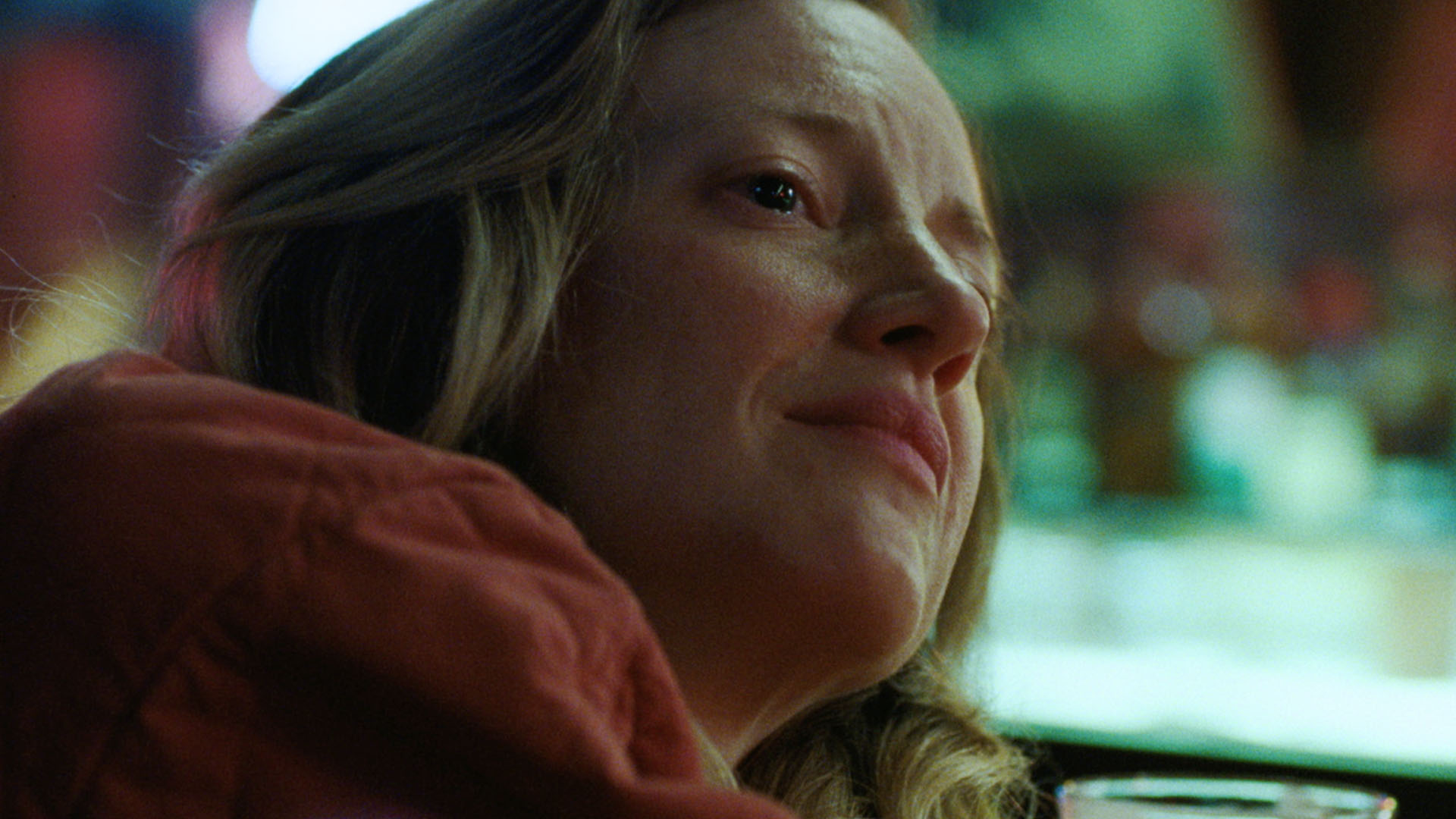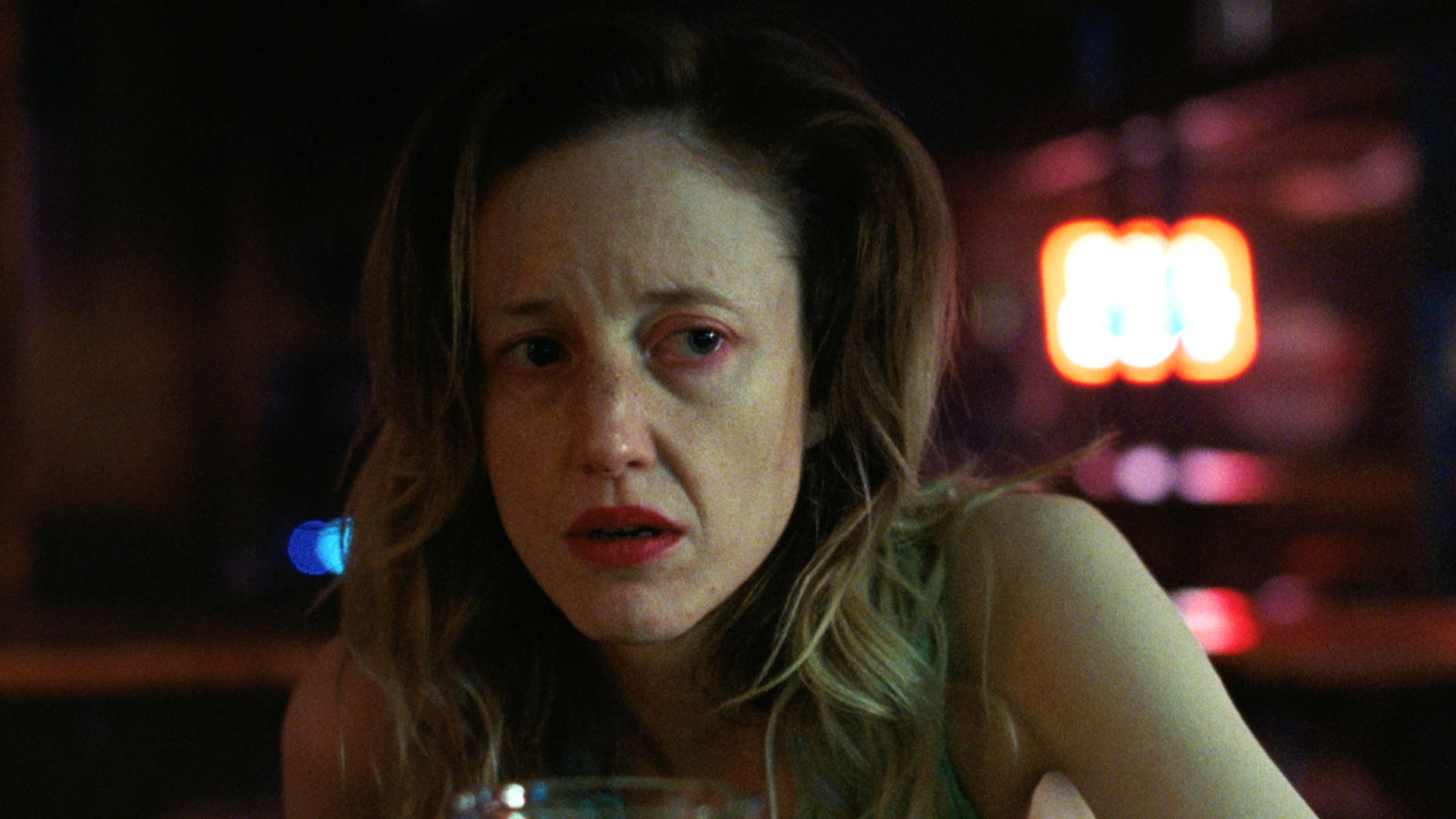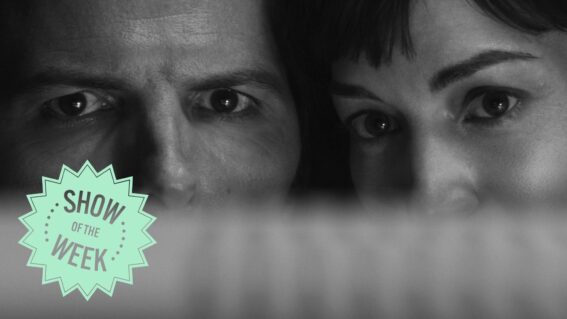Celebrating Andrea Riseborough, incredible Oscar-nominated star of To Leslie

Perhaps this year’s biggest Oscar surprise (so far), Andrea Riseborough gives an Oscar-nominated performance in dramatic indie To Leslie. Recognition of Riseborough’s talents shouldn’t come as a surprise, though – Cat Woods looks at what the actor brings to To Leslie, strengths seen in a number of impressive previous roles.
Andrea Riseborough’s Academy Award-nominated performance as Leslie Rowland in director Michael Morris’ To Leslie reveals the depths of the British actor’s versatility and empathy. As a single mother in West Texas, Leslie fulfils a common dream when she wins the lottery, only to lavish her winnings on alcohol and drugs. She’s also squandering her peripatetic life, spent between motel rooms and the street.
Six years after her lottery win, freshly kicked out of her home in a residential motel, Leslie moves in with her 20-year-old son James (Owen Teague) on his proviso that she remain sober. She fails. James calls upon his grandmother Nancy (Allison Janney), who—together with her boyfriend Dutch (Stephen Root)—allows Leslie to move in with them. She squanders this conditional generosity too, heading to the local bar and ending up homeless once again.
This is where her luck turns. Far from a lottery win, but a fortune nonetheless, the owner of a local motel, Sweenie (Marc Maron) takes pity on Leslie when he finds her sleeping beside his business, offering her a position cleaning rooms for a paltry wage.
If you’re rolling your eyes at yet another beautiful actress playing a hard-done-by addict who finds redemption through a man’s love, that’s understandable. The barest bones of this story have been picked clean by directors and Hollywood actors seeking indie credibility for decades at least (for example, Anne Hathaway in Rachel Getting Married, Charlize Theron in The Burning Plain, and Angelina Jolie as Gia).
Leslie could have been a living tragedy: a jumble of sinewy limbs, exaggerated slurring and tics, a mess. Riseborough embodies more than the typical traits of an addict—urgent eyes, constant anxiety, numbness and paranoia—to pierce the veil of who Leslie really is. She is a mother, and she is a woman in a society that is not structured to support or value women of any description, particularly unmarried, unemployed women. In her vulnerability and her inability to imagine that her life will change or improve, she is eminently relatable.

Riseborough’s ability to imbue her characters with that dueling, compelling vulnerability and resilience is her greatest skill as an actor. As Rose in Brighton Rock, Wallis Simpson in W.E., Colette McVeigh in Shadow Dancer, and Laura Aulburn in Birdman, she fundamentally changed her physicality, her voice and her demeanour to melt fully into the skin of her characters. Riseborough’s dexterous talent has also been on display in the horror/thriller films Mandy and Possessor.
In an interview for Brighton Rock, Riseborough reflected on Rose’s surprise in being loved, however flawed it is, “It’s not something she thinks she deserves or needs, but… it’s the most exciting thing in the world.”
That sense of deserving love, or recognising it, is one Riseborough finds the subtleties and suffering in. She unthreads the fabric of these women’s lives in ways that expose them to us, while maintaining the mystery of their deepest motivations, so that we can imagine our way into their lives and find our stories in their stories.

Riseborough’s Leslie deserves critical plaudits, so it is a shame that the controversy over her Oscar nomination has sullied talk about her performance.
“She really loves him, and she feels rejected by him daily, and she feels inadequate and not sexy, and constantly has to reassert herself,” Riseborough explained in 2014 of her Birdman character, Laura. Eight years later, she may have been describing Leslie, who clumsily tries to seduce men in bars and when she is humiliated, swears and sneers in the protective veneer that is all the dignity she can muster.
So, as very different as her characters look or seem across various genres and films, there is a universality in the challenges they face, an inability to be seen and unconditionally loved.
Riseborough has spent decades treading the theatre boards and proving her mettle in the on-screen company of Helen Mirren, Allison Janney, Michael Keaton, Amy Adams and Jake Gyllenhaal. She has won numerous awards at indie film festivals and industry events. While the Oscars may snub her, and the controversy may steal more attention than it warrants, the fact that she will be recognised for her exemplary personification of Leslie in a shoestring-budget indie movie is sufficient evidence of her acting calibre.

The fierce support of her high-profile industry colleagues for To Leslie and her award nomination include Marc Maron, Taron Egerton, Gwyneth Paltrow, Kate Winslet, Jane Fonda, Edward Norton and Helen Hunt. Is it a well-planned publicity campaign? Perhaps, but these are celebrities willing to attach their names to a movie and an actress on social media, the most public, exposed forum.
Riseborough deserves their acclaim, and the accusations and controversy that taint her award nomination are vicious and unjustified. If all this fizzle and pop draws attention to a film that was made for less than $US1 million over 19 days, showcasing one of the year’s best performances, then hallelujah. Let’s hope people see it, which is all Riseborough and director Michael Morris ultimately wanted.



















